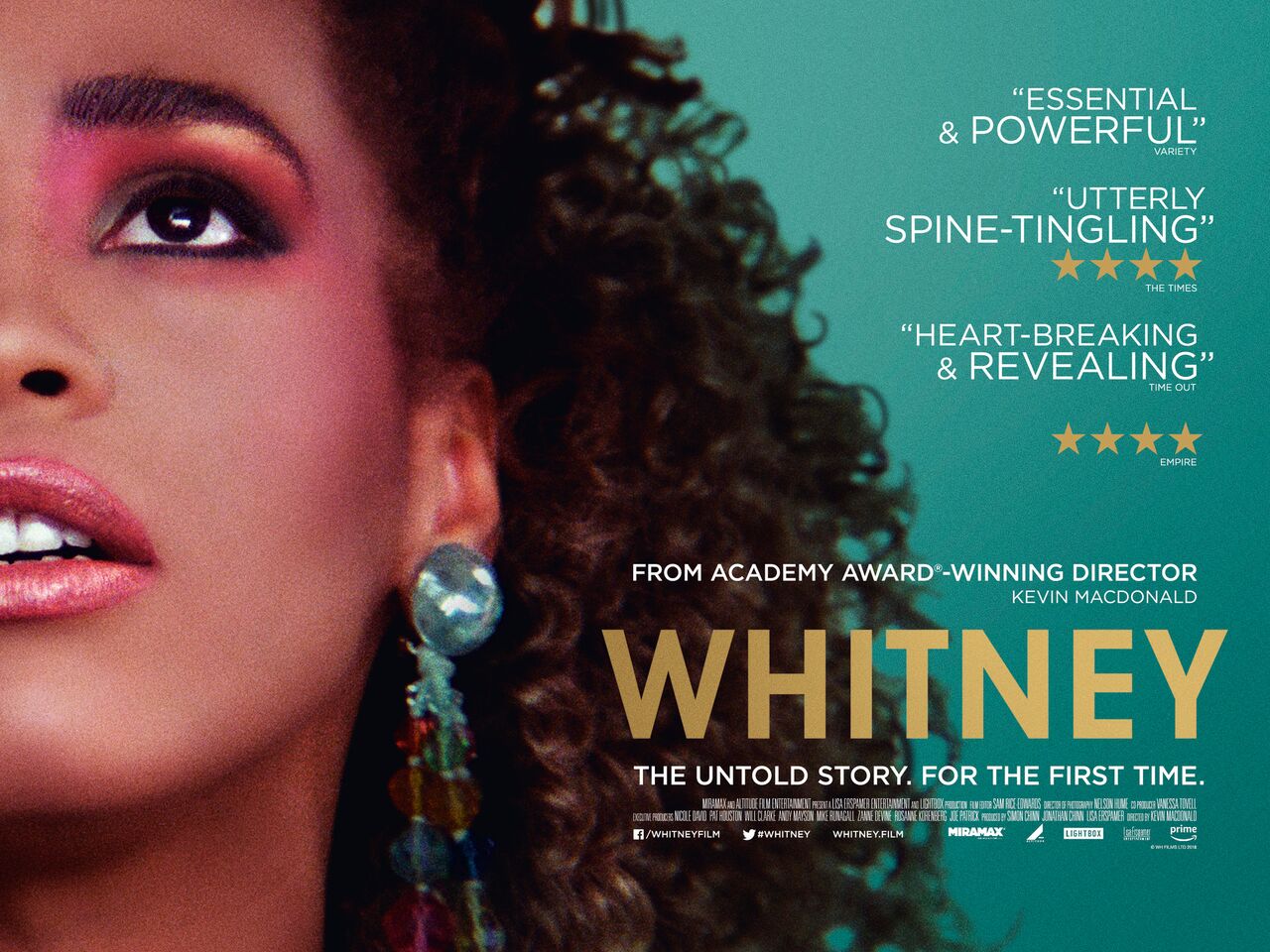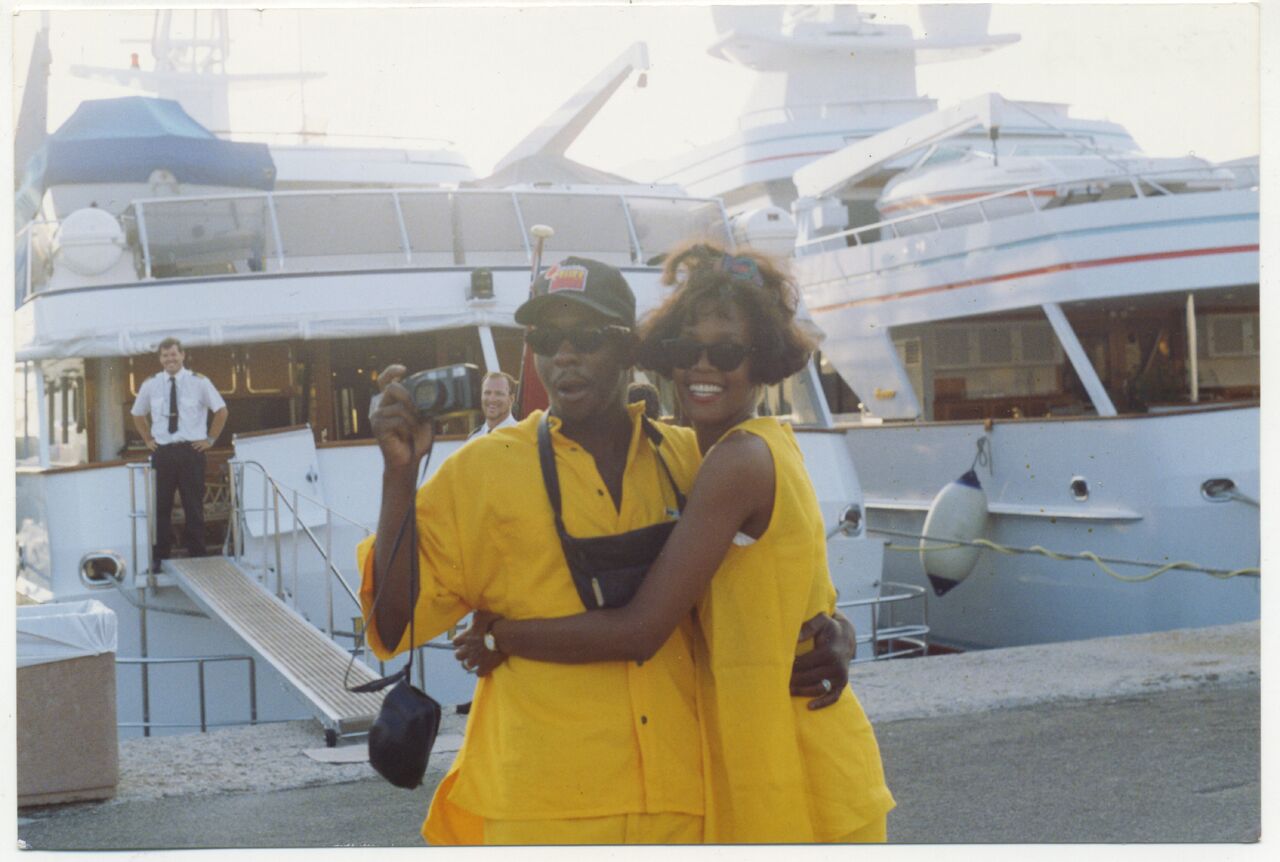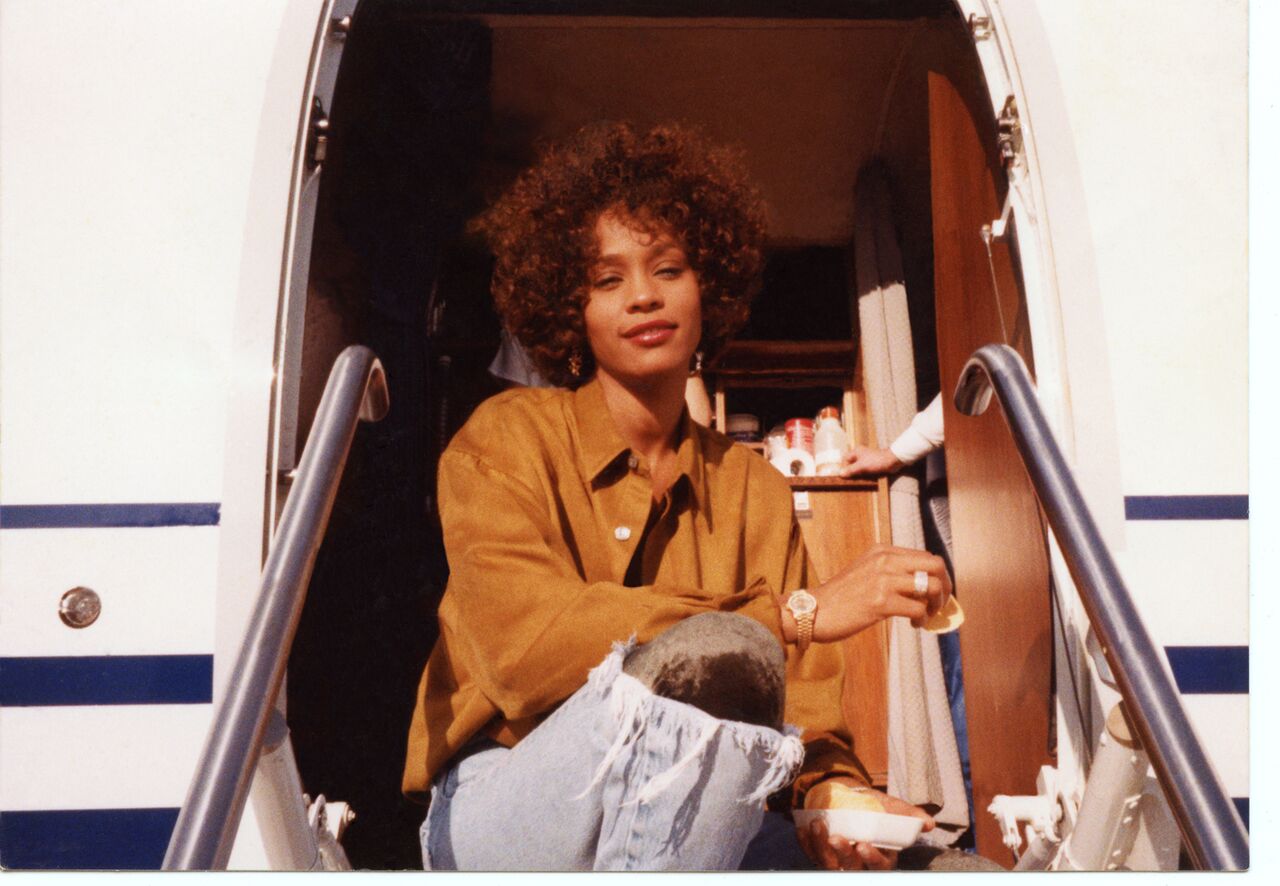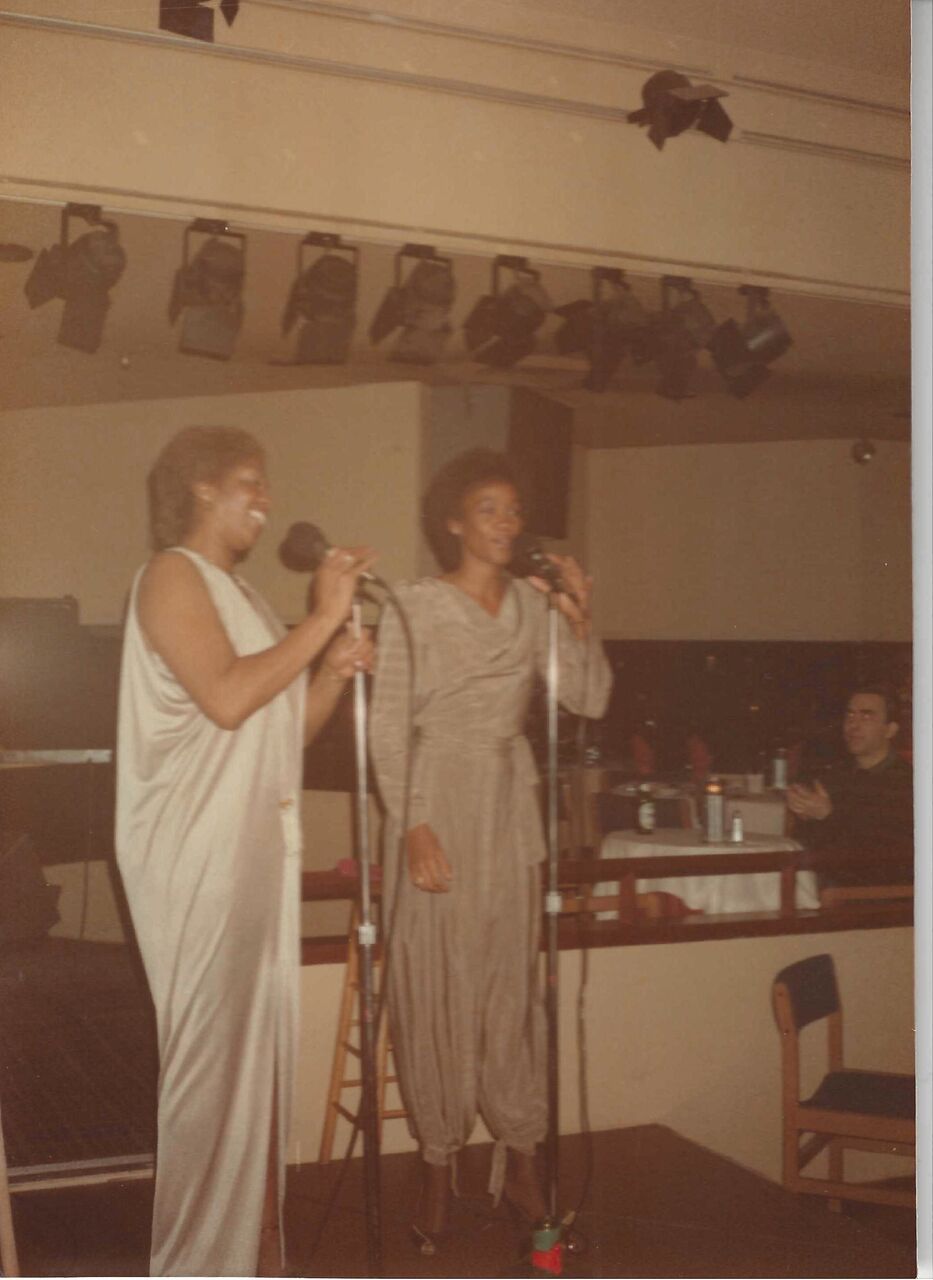This performance – at Brixton’s Ritzy – starts with the 11-strong London Community Gospel Choir singing ‘I Wanna Dance with Somebody’, ‘I Wanna Know’, and ‘I Will Always Love You’ and ends with a rendition of ‘I Have Nothing…’
All of the songs – sung by different leads, and with just piano backing – are performed admirably and, oftentimes, possessed moments of hard-won majesty. However – especially at the end, when it might have been better, to have left us with Whitney singing us Home – these performances reminded us of her seemingly-effortless, playfully seductive vocal perfection.
But maybe that’s part of the issue: the reason Whitney Houston is revered as she is – arguably 20 years past her vocal prime – is because, at both her best and her worst, she didn’t seem to care – at least not as much as we did (!)
The documentary starts with a montage of Whitney images and songs, generic pop videos, and news footage of civil and international unrest. It’s a clear tactic to try to put the story of Whitney Houston into an historical context (success), whilst also implying an elevated impact upon the zeitgeist (fail).
It is true that Whitney’s voice – from her TV performance of ‘Home’ on the Merv Griffin Show in 1983 to about 1993 – changed the water and still, to this day, is the undoubted benchmark for Soul/Pop singing.
Ultimately, this is a story about an upwardly mobile African-American family in the ‘80s and ‘90s (a kind of real-life ‘Cosby Show’) that became messily dysfunctional…in public.
It is also true that, at a time of limited (positive) visibility for black women worldwide, she was an icon for many within the black diaspora. She was beautiful, poised, talented…OK, she couldn’t dance a beat but, with that voice and smile, she could be forgiven almost anything.
Until…
Unfortunately for her, music and media changed during the ‘90s, when music didn’t mean a thing if it didn’t have that (urban) swing, and when icons were supposed to be both interesting and informed. This was when both her talent and her desire retreated into the shadows.
This documentary is – for the most part – a reasonable attempt at shining a light on her life, and ‘our’ perception of it. The access to the main surviving players is impressive; only confidante / handler (lover?) Robyn Crawford is missing here. Also, the way the talking heads are used is respectful and – for the most part – reasonably objective. Even when the filmmaker is pushing ‘sensation’, he simply allows the camera to linger a moment, thus allowing the viewer to make up their own minds.
This is a rare bio-documentary of a tragic public figure; one shines a light on the main character while also nudging us to empathise with the contributors. Although not always sympathetic, mother Cissy Houston, brothers Gary and Michael, and husband Bobby Brown are always relatable – even when coming across as jealous, self-serving and/or bitter.
The access to the main surviving players is impressive
One main issue that I have with this documentary is that two of the talking heads named a particular (well-known) singing relative as a likely person rumoured to have sexually interfered with a childhood ‘Nippy’ (Whitney). My issue is that Whitney did dot (publicly) do the same, and the person in question – who died in 2008 – is now unable to defend themselves.
Another issue I have is one of causality. In a desire to ‘wrap up and put a bow around’ the ‘Whitney saga’, we are asked to accept the idea that the inferred molestation was responsible for all the (bad) things that happened to her thereafter. Apart from the fact that this is disrespectful to ‘survivors of abuse’ and non-molested homosexuals alike, it is also rather simplistic.
One of the great things about her voice and singing ability is the sense that – at her best – there was nothing that she presented (vocally) that should not have been there.
It’s a shame that this documentary – after having initially presented such a stunning framework – falls away somewhat, just a few short steps from greatness.
What I take from this viewing is that Whitney Houston never really reconciled with ‘Nippy’, and never found enough reasons – whether church, family, singing itself, parenthood, fame, or her own health – to come clean.
Also, because she wanted so much to please others (especially her mother), or – often in a drugged-up state – please herself, the public rarely ‘got’ to see, or hear from, a fully integrated, engaged Whitney Houston.
Ultimately, this is a story about an upwardly mobile African-American family in the ‘80s and ‘90s (a kind of real-life ‘Cosby Show’) that became messily dysfunctional…in public.
In essence, hers was a specific story of great talent and huge irresponsibility that we – the public – were largely onlookers to. Therefore, in the absence of Whitney herself, her daughter Bobbi-Kristina, her father John, Robyn Crawford, and a certain ‘named relative’, this is as good a documentary about ‘Whitney Houston and her surrounds’ as ‘we, public’ are ever likely to get.
So, Miss Houston – thank you for the music, and to director Kevin Macdonald, I say thank you for (much of) the film.





























